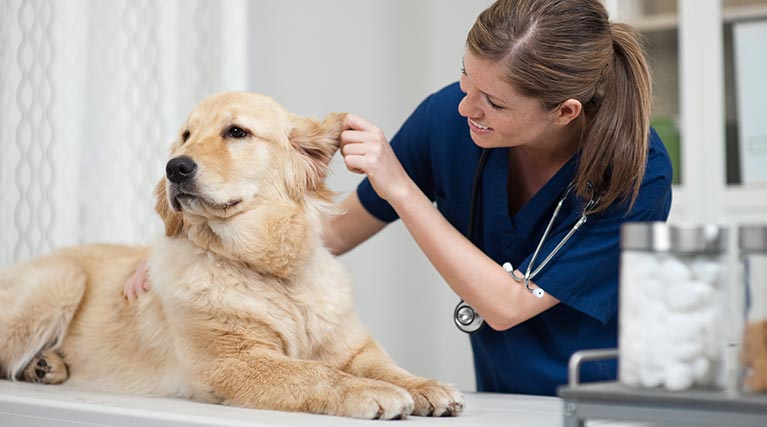The Benefits of Choosing Veterinarian Enterprise for Your Pet's Ongoing Treatment
The Benefits of Choosing Veterinarian Enterprise for Your Pet's Ongoing Treatment
Blog Article
Inoculation Guidelines From Your Trusted Veterinarian
Vaccination standards offered by your trusted veterinarian play an important duty in securing your animal's wellness and health. Furthermore, resolving usual misunderstandings bordering injections can additionally boost pet owners' confidence in these preventative steps.
:max_bytes(150000):strip_icc()/veterinarian-526081-final-d02935e28abf4e4a9b4dc25b5d0f2cc8.png)
Relevance of Inoculations
Vaccinations play a crucial function in safeguarding pet dogs against a variety of avoidable illness. By boosting the body immune system to recognize and fight certain virus, injections significantly minimize the incidence of transmittable conditions that can impact a pet's health and long life. Not just do inoculations secure individual pets, however they also add to herd resistance, consequently decreasing the general occurrence of illness in the family pet populace.
Prompt inoculations assist to mitigate the spread of diseases such as rabies, parvovirus, and distemper, which can have severe effects for both people and pets. In addition, vaccinations are frequently a need for boarding centers, brushing services, and dog parks, making them vital for those who wish to socialize their pet dogs.

Core Vaccinations for Pets
While the details inoculation needs of family pets can vary based upon individual variables, core injections are widely suggested to shield against the most severe and usual diseases (Veterinarian Enterprise). Core vaccines are those regarded necessary for all family pets, regardless of their way of life or geographic place, as they secure versus highly transmittable and potentially deadly illnesses
For pet dogs, the core injections consist of those for canine distemper, parvovirus, adenovirus (liver disease), and rabies. Canine distemper is a viral condition that impacts the breathing, intestinal, and nerves. Parvovirus is understood for causing extreme intestinal health problem, particularly in young puppies. Adenovirus can result in liver condition, while rabies is a zoonotic illness that poses a threat to both family pets and people.
In felines, core vaccinations include feline panleukopenia, feline calicivirus, feline herpesvirus (rhinotracheitis), and rabies. Feline panleukopenia is a highly transmittable viral condition that impacts the immune system and intestines. Calicivirus and herpesvirus are significant factors to upper respiratory system infections in felines, while rabies remains a crucial worry for public health.
Speak with your vet to ensure your pets obtain their core inoculations on time.
Non-Core Vaccines Explained
Non-core injections are tailored to resolve certain risks associated with a family pet's lifestyle, atmosphere, and exposure to specific illness. Unlike core vaccines, which are widely suggested for all pet dogs, non-core injections are taken into consideration based on individual scenarios. These vaccines are particularly vital for animals that may experience special virus as a result of their geographical area, traveling habits, or tasks.
Instances of non-core vaccinations include those for Bordetella bronchiseptica, which is linked to kennel coughing, and Lyme disease, caused by ticks. Animals that often engage with various other animals, such as those in boarding facilities, canine parks, or brushing environments, might take advantage of Bordetella inoculation. If you live in an area where Lyme illness is prevalent, immunizing against this illness can be a sensible option for outdoor-loving pets.
Other non-core vaccinations may include those for leptospirosis, canine influenza, and feline leukemia, depending on the details danger variables present. It is necessary to have a comprehensive conversation with your vet concerning your pet's way of life and the potential need for these injections, making sure a customized inoculation technique that best safeguards your fuzzy good friend.
Vaccination Schedule Review

As animals develop, it is necessary to adhere to the advised booster vaccinations. Emergency Vet. For grown-up pets, core injections are usually given every one to 3 years, you could try here depending on the specific vaccination and regional regulations. Non-core vaccines might be encouraged based upon way of living elements and regional illness occurrence, necessitating a tailored strategy
Routine veterinary check-ups are essential for updating inoculation schedules. Your veterinarian can give assistance on one of the most ideal immunizations for your pet dog, considering age, wellness condition, and ecological risks. By remaining aggressive and notified, pet dog owners can Continued ensure their hairy buddies receive prompt and reliable inoculations, consequently guarding their wellness and well-being throughout their lives.
Typical Misconceptions Concerning Injections
Misunderstandings concerning animal inoculations can lead to confusion and reluctance amongst family pet proprietors relating to the immunization process. One prevalent misconception is that vaccinations are unneeded for indoor family pets. While it's true that interior animals encounter reduced risks, they are not entirely immune to diseases, as virus can be introduced with numerous ways, consisting of human garments and other family pets.
One more misconception is that vaccinations can cause the diseases they aim to avoid. In truth, the majority of vaccines contain inactivated or attenuated virus, which can not trigger disease in healthy animals. Some pet owners also believe that their animals should not be vaccinated if they are already healthy and balanced; however, vaccinations are a proactive procedure that aids protect against the beginning of health problem.
Furthermore, numerous family pet owners fear that vaccines will lead to long-lasting health issues. The advantages of vaccination-- protecting pets from possibly life-threatening illness-- far outweigh the threats.
Final Thought
In summary, adherence to vaccination guidelines is important for ensuring the wellness and longevity of animals. Core vaccines give necessary protection against significant illness, while non-core vaccines resolve specific threats based see it here on specific way of lives. Developing a comprehensive vaccination timetable, along with regular vet check-ups, promotes optimum health administration. Dispelling usual misconceptions surrounding inoculations further reinforces the importance of notified decision-making in pet care. Eventually, a positive approach to vaccinations is vital for keeping pet health.
Not just do inoculations shield specific pets, yet they also add to herd resistance, thus decreasing the overall prevalence of conditions in the animal populace.
Misunderstandings about pet vaccinations can lead to complication and reluctance amongst pet owners relating to the immunization procedure. While it's real that indoor pets deal with reduced threats, they are not totally immune to diseases, as microorganisms can be presented through different methods, including human apparel and other animals.
Some pet proprietors likewise believe that their pet dogs should not be immunized if they are already healthy; however, vaccinations are a positive action that helps protect against the beginning of illness.
The advantages of inoculation-- protecting pets from possibly life-threatening illness-- much outweigh the threats.
Report this page